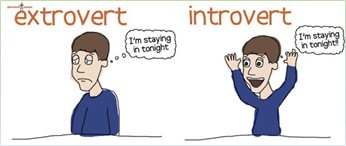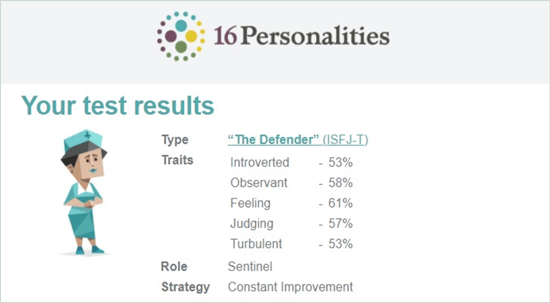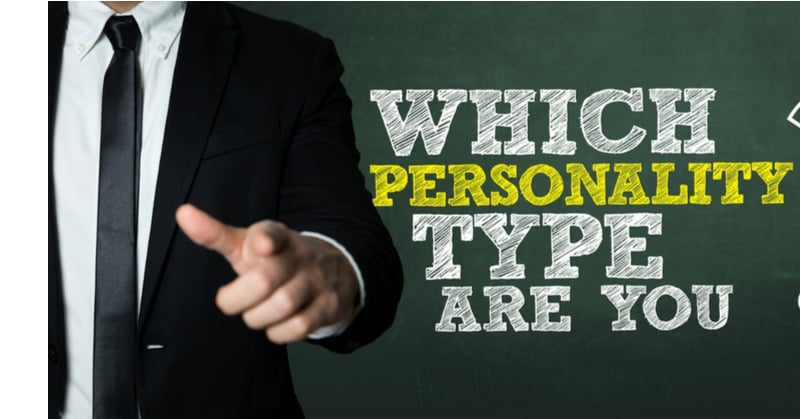If you are in the accounting, bookkeeping, or tax professions (or in one of the peripherally related professions such as payroll, app development, tech support, etc.), then it’s possible that you’ve questioned whether you in fact have personality. Right? Well, let me reassure you that YES, you do have personality! But here is the main question.
What IS your personality like? Is it the same as mine? Is it the same as your peers or colleagues? Chances are, probably not. Everyone is different – and therefore, everyone’s personality is different. In other words, I cannot assume that just because I may be an Introvert, then the person sitting next to me must also be an introvert. It is more than a black and white comparison.
Each one of us has different shades to our makeup, which is influenced by a gazillion of factors. Therefore, it is safe to say that we all have different aspects of our personality and that may be at odds or opposite of our family friends, co-workers, or colleagues. Through understanding those nuanced aspects of our personality, we can start to appreciate our differences and how we complement and round out each other.
This article, derived from a workshop I developed and taught at the annual Scaling New Heights conference last year, is designed to help us delve into all these considerations about personality. Even though we will touch on the two main personality types in this article, introverts and extroverts, we will also focus on the true meaning of both, as well as demonstrate that personality is not an either/or phenomenon – there are various shades of grey that make up our own unique, individual selves.
Introversion vs Extroversion: What Does it REALLY Mean?

I love this picture. The Extrovert and Introvert have two diametrically opposite reactions to the situation of “staying in.” Does this resonate with you?
Having shared this truth, please consider the fact that being an introvert vs being an extrovert is so much more than just being shy or outgoing. Before we consider what is the biggest difference between the two, let’s look at the common key traits of each.
You may be an Introvert if:
- You enjoy spending time alone
- You prefer quality time w/1-2 people vs large groups
- You need alone time to rest and recharge
You may be an Extrovert if
- You like crowds, parties, and other large gatherings
- You need quality time with others to help you recharge
- You’re outgoing, talkative, and like being the center of attention
So, the biggest difference between the two broad personality types is how each prefers to spend their time! But, that isn't all.
Another consideration regarding introvert vs extrovert is that it’s more complicated than just being “and/or.”
The Situation:
- We assume that we fit neatly in either one or the other category ie we are either Introverts or Extroverts.
- We assume that others fit in a particular “box” based on what we observe because of certain outside traits they exhibit.
In reality:
- As we are all unique and individual human beings, we do not fit neatly in any one category.
- We can exhibit traits from both types at varying degrees or levels.
Truthfully, we all fall somewhere on this spectrum. And many of us fall somewhere towards the middle. There is a term for this middle-range type - Ambivert.

Ambivert: The Best of Both Worlds!
Introvert? Extrovert? Ambivert? You may be smack in the middle of the spectrum, or closer to the middle than on either end. So, what is an Ambivert, exactly?
An Ambivert is formally defined as a person whose personality has a balance of extrovert and introvert features. However, this statement really encompasses what an Ambivert truly is. "An Ambivert is normally comfortable with groups and enjoys social interaction, but also relishes time alone and away from the crowd... I’m exactly what an Ambivert is… yes, I like to go out and have fun, but I definitely like my alone time, too. Somedays I show more qualities of one or the other, but I think everyone has those days."
According to an article written by Travis Bradberry for Forbes, there are nine signs to look for if you suspect that you or someone you know may be an Ambivert. I only list four here, so read the full article to learn the other nine. d I have provided links to his article in the Resources area.
You may be an Ambivert if:
- Being the center of attention is fun for you, but you don’t like it to last.
- If you spend too much time alone, you get bored… yet too much time around other people leaves you feeling drained.
- Some people think you’re quiet, while others think you’re highly social.
- You’re equally adept and comfortable at performing tasks alone or in a group – you don’t have much preference either way.
How Can You Discover Your OWN Unique Personality Type?
You can use the free 16 Personalities assessment tool to get started. The tool includes:
- A comprehensive assessment based on the Myers-Briggs 16 personality types.
- You’ll receive an email with your test results.
- You can set up your unique profile to explore advice, exercises, and additional resources designed to help you understand and master your personality.
- AND… you will receive a link to your unique profile that you can share with others!
My personality type is "The Defender” (ISFJ-T). To give you an idea of what you will learn from your own personality assessment, let me share some key aspects of my profile.

Want to learn more about me? You can see my full results here and compare them to your profile for fun.
Key Takeaways
Here are some key takeaways from my research:
- We shouldn’t make any assumptions about anyone… because - more often than not - our assumptions will be incorrect. And do you know what they say about assuming, correct?
- If we want to understand the others with whom we live and work, then we should encourage them to undergo these assessments and share their results with us.
- The only way in which we can really improve ourselves is if we take the time to know all we can about ourselves – the good, the bad, and the ugly, as we cannot change what we don’t acknowledge.
- We need to be willing to accept and embrace what others have to say about us – again, the good, the bad, and the ugly – so that we can embrace the changes that we need to make
- And finally, we also need to accept and embrace others’ behaviors and actions, no matter if good or bad, as NONE of us are perfect. If we continue to expect others to act “perfectly” all the time, then we will be sorely disappointed.
Just for Fun: Here Are Some Famous Introverts in History
- Steven Spielberg has admitted he is an introvert and even states he would rather spend time getting lost in watching movies.
- Meryl Streep is a multi-time Academy Award winner known for her preparation in becoming every character she’s played and she is also an introvert.
- Barack Obama is another introvert and is the 44th US President who made history in 2008 by becoming the first African-American elected into the office.
.png?width=150&height=63&name=TWRlogo-regmark_blueblack%20(1).png)
.png)










Do you have questions about this article? Email us and let us know > info@woodard.com
Comments: